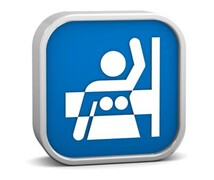If you need to schedule a screening mammogram and your COVID-19 vaccine or booster, don’t delay. The Society of Breast Imaging says the four- to six-week waiting period that was originally recommended is no longer needed. These updated guidelines are supported by numerous studies that find there’s no need to wait weeks after a COVID-19 vaccine or booster before getting your screening mammogram.
Swollen Lymph Nodes Are Side Effects of Several Vaccines
Swollen lymph nodes are a sign that your body is developing an immune response to a vaccine. This can happen with many different vaccines, including the flu vaccine, but it is more common after a COVID-19 vaccine or booster. According to Lars Grimm, MD, a breast radiologist at Duke Health, since COVID-19, swollen lymph nodes are being seen more frequently by radiologists because sensitive mammography technology can detect swollen lymph nodes that can’t be felt or seen with the naked eye.
“In the past, we might see enlarged lymph nodes once every few weeks,” said Dr. Grimm, who chairs the Society for Breast Imaging committee that authored the guidelines. “Now with widespread vaccination efforts, we are seeing multiple cases of swollen lymph nodes every day.” When the COVID-19 vaccine first came out, radiologists were quicker to bring women back for more testing when swollen lymph nodes were detected. Now, if there are no other concerns, additional imaging is not required unless the lymph nodes remain swollen for an extended period after vaccination.
“When you get your mammogram, it’s important to tell the technologist if you received a COVID-19 vaccine, when you received it, and in which arm it was given.”
Don’t Cancel or Delay the COVID-19 Vaccine or Your Mammogram
Dr. Grimm stressed that getting the COVID-19 vaccine AND getting a screening mammogram are both important. Neither should be avoided. Rather, he said, people should take this side effect of the COVID-19 vaccine and booster into consideration when making their appointment.
“When you get your mammogram, it’s important to tell the technologist if you received a COVID-19 vaccine, when you received it, and in which arm it was given,” Dr. Grimm said. “Usually, the lymph node swelling occurs on the side you received the vaccine.” Swollen or enlarged lymph nodes can -- on rare occasions -- be a sign of breast cancer. However, after a vaccine, they are more likely a sign that the vaccine is helping your body develop an immune response to protect it from getting COVID-19.
No Connection Between the COVID-19 Vaccine and Breast Cancer
Getting a screening mammogram soon after receiving a COVID-19 vaccine won’t do you any harm. “It may mean we might take a few additional pictures and recommend a short follow-up to ensure the lymph nodes return to normal size,” explained Dr. Grimm. Enlarged lymph nodes from a COVID-19 vaccine or booster can be seen over a long period of time, as much as several months. Getting vaccinated and boosted for COVID-19 are essential for protecting yourself from the coronavirus, and getting regular mammograms can keep you healthy by catching breast cancers early, when they might be easier to treat.






